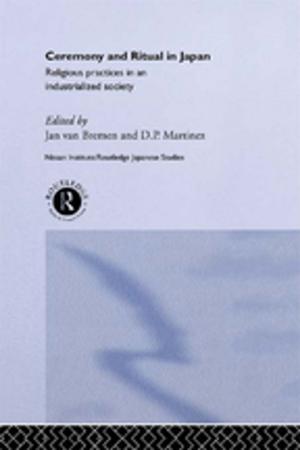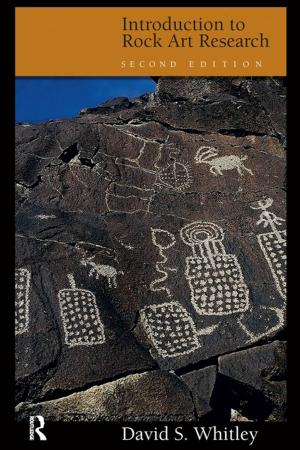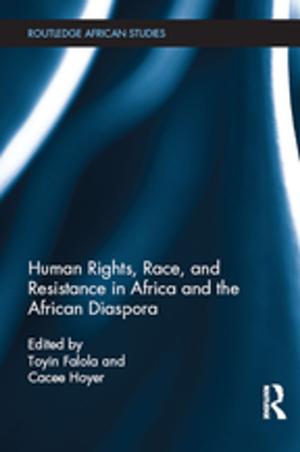The Lahu Minority in Southwest China
A Response to Ethnic Marginalization on the Frontier
Nonfiction, Social & Cultural Studies, Social Science, Cultural Studies, Ethnic Studies| Author: | Jianxiong Ma | ISBN: | 9781136296017 |
| Publisher: | Taylor and Francis | Publication: | May 7, 2013 |
| Imprint: | Routledge | Language: | English |
| Author: | Jianxiong Ma |
| ISBN: | 9781136296017 |
| Publisher: | Taylor and Francis |
| Publication: | May 7, 2013 |
| Imprint: | Routledge |
| Language: | English |
The Lahu, with a population of around 470,000, inhabit the mountainous country in Yunnan Province bordering on Burma, Laos and northern Thailand. Buddhists, with a long history of resistance to the Chinese Han majority, the Lahu are currently facing a serious collapse of their traditional social system, with the highest suicide rate in the world, large scale human trafficking of their women, alcoholism and poverty. This book, based on extensive original research including long-term anthropological research among the Lahu, provides an overview of the traditional way of life of the Lahu, their social system, culture and beliefs, and discusses the ways in which these are changing. It shows how the Lahu are especially vulnerable because of their lack of political representatives and a state educated elite which can engage with, and be part of, the government administrative system. The Lahu are one of many relatively small ethnic minorities in China – overall the book provides an example of how the Chinese government approaches these relatively small ethnic minorities.
The Lahu, with a population of around 470,000, inhabit the mountainous country in Yunnan Province bordering on Burma, Laos and northern Thailand. Buddhists, with a long history of resistance to the Chinese Han majority, the Lahu are currently facing a serious collapse of their traditional social system, with the highest suicide rate in the world, large scale human trafficking of their women, alcoholism and poverty. This book, based on extensive original research including long-term anthropological research among the Lahu, provides an overview of the traditional way of life of the Lahu, their social system, culture and beliefs, and discusses the ways in which these are changing. It shows how the Lahu are especially vulnerable because of their lack of political representatives and a state educated elite which can engage with, and be part of, the government administrative system. The Lahu are one of many relatively small ethnic minorities in China – overall the book provides an example of how the Chinese government approaches these relatively small ethnic minorities.















